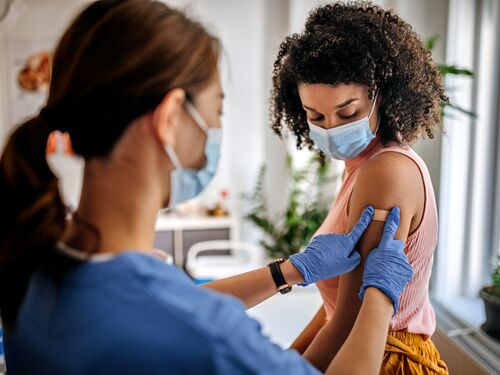Science Academies from G20 Nations Urge Their Governments to Promote Creation of Global Surveillance Network to Detect Early Signs of Potential Future Pandemics
Statement
By Sara Frueh
Last update August 6, 2021
WASHINGTON — To improve global preparedness for future pandemics, the science academies of the G20 nations today released a statement urging their governments to promote the creation of a global surveillance network that could detect the harbingers of a potential new pandemic.
In addition, the science academies recommended that their governments promote distributed manufacturing of drugs, vaccines, and medical supplies worldwide, and also launch an Intergovernmental Convention to pave the way for an international agreement on how to prepare for and manage future pandemics.
The statement is intended to inform discussions at the G20 Summit in Rome in October.
In the statement, the science academies recommend that their governments:
- Promote the creation of a global network of surveillance, with agreed criteria to detect emerging unusual clusters of morbidity and mortality that may be the harbingers of a potential new pandemic. Governments should build on existing infrastructures such as the global alert and response system for disease outbreaks, promote enhanced support for systems such as the Epidemic Intelligence from Open Sources (EIOS) initiative, and develop robust policies and platforms for collating and sharing detailed data, for example on pathogen genomics.
- Promote the distributed manufacture and delivery of diagnostics, drugs, vaccines, medical supplies, and equipment. Governments should seek ways to increase technology and manufacturing capability worldwide — especially in low- and middle-income countries — and streamline regulatory processes for novel diagnostics, drugs and vaccines. International regulatory agencies should look at the lessons learned from swift development of vaccines in the COVID-19 pandemic and ensure new regulatory processes can be implemented in a timely fashion.
- Launch an Intergovernmental Convention that should pave the way to the formulation of an International Agreement on Pandemic Preparedness and Management, as recently proposed by more than 20 world leaders. The convention would provide a unique forum to assess the experience of COVID-19 for successes and failures in global cooperation and to discuss the need for incentives and mechanisms to reinforce the International Health Regulations (2005), which must become a sharper instrument for action and more timely reporting of potential outbreaks.
The U.S. National Academies of Sciences, Engineering, and Medicine are private, nonprofit institutions that provide independent, objective analysis and advice to the nation to solve complex problems and inform public policy decisions related to science, technology, and medicine. They operate under an 1863 congressional charter to the National Academy of Sciences, signed by President Lincoln.
Contact:
Sara Frueh, Senior Media Officer
Office of News and Public Information
202-334-2138; e-mail news@nas.edu
More like this
Discover
Events
Right Now & Next Up
Stay in the loop with can’t-miss sessions, live events, and activities happening over the next two days.
NAS Building Guided Tours Available!
Participate in a one-hour guided tour of the historic National Academy of Sciences building, highlighting its distinctive architecture, renowned artwork, and the intersection of art, science, and culture.


